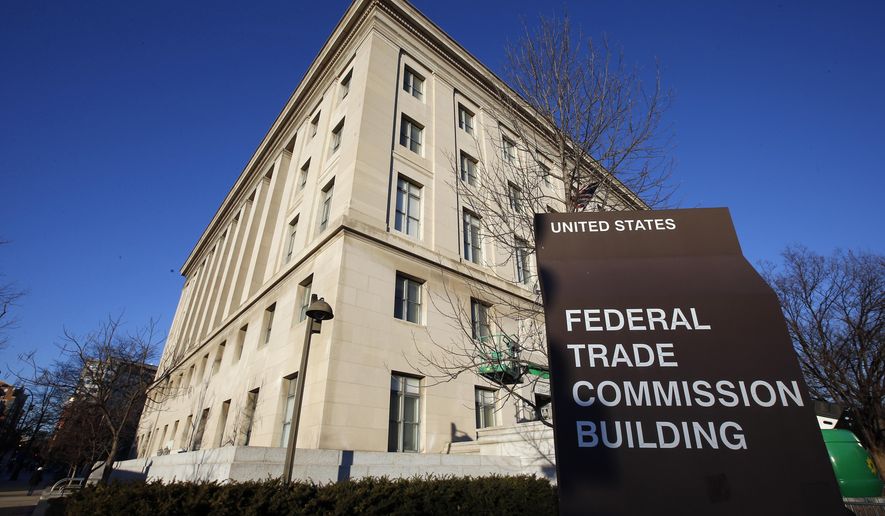OPINION:
Nothing brings out business caterwauling like a sweeping new government regulation. The party-line Federal Trade Commission vote to ban most noncompete agreements in employment was no exception.
The U.S. Chamber of Commerce and Business Roundtable almost instantaneously sued and will likely succeed in blocking the rule. This will result in a loss of potential gains for workers, consumers and the economy, and Congress should act to limit most such coercive arrangements.
Noncompete clauses limit employees from taking jobs in the same industry or geographic area. Some block former employees from starting similar businesses.
Those may make sense for executives and highly skilled workers with direct access to trade secrets who develop new processes and designs or craft competitive strategies. Valid proprietary interests, however, could be addressed less intrusively by nondisclosure agreements.
Without credible justification, noncompetes have been imposed on security guards, college interns, janitors, baristas, hairstylists, schoolteachers, physicians in clinical positions and many entry-level workers.
Those protect established businesses from competition but suppress worker mobility, innovation and wages.
It takes only a few days on the job to get fast-food workers up to speed, but many impose noncompetes on those workers.
A study of 156 large chains found 60% impose no-poaching rules on franchisees, and McDonald’s, Burger King and other franchisers’ practices are being challenged in court.
Some hourly positions, such as auto mechanics, require periodic in-service training to address rapidly evolving vehicle technology. But much of this is part of the employment bargain: Workers exchange their services for wages and training to remain marketable.
In the 15th century, English masters, dyers and blacksmiths limited apprentices from setting up competing shops nearby, but English courts often found those conditions coercive. In 1894, the House of Lords determined, “There is obviously more freedom of contract between buyer and seller than between master and servant or between an employer and a person seeking employment.”
On the surface, the local tradesman appeared to have an argument — why train a potential competitor? But that denies that the master tradesman obtains value for products sold by assigning the apprentice progressively more skilled tasks as he matures.
While estimates are approximate, it appears that about 18% of U.S. workers are subject to noncompete clauses and some 38% have been subject to such an agreement over the last five years.
Hairstylists are frequently subject to noncompetes, but hair coloring and cutting are idiosyncratic to clients and not proprietary knowledge of salons. Limiting stylists’ opportunity to establish competing salons harms consumer choice and worker mobility and income.
After completing his residency, Matthew Truocchio sought work as an anesthesiologist on Long Island. He received an offer that would require him not to seek a comparable position for two years within a 25-mile radius. Effectively, he would have to leave metropolitan New York — with all the costs that go with that, such as selling a home.
Hospitals provide valuable experience, but so does most work — physicians bring their skills with them. The FTC projects doctors would gain as much as a 37% increase in income.
Economic theory predicts that in an efficient job market, workers and employers will strike wage bargains that weigh the value of the experience and skills gained from specific positions and the risks imposed by a noncompete agreement. Individual workers, however, hardly have the same resources to collect market information and access to legal counsel as large employers.
Workers are often informed about required noncompete requirements as part of onboarding. The new hire may have just turned down other offers or quit his old job and is now confronted by an offer he can’t refuse. Sometimes, noncompete clauses are buried in employee handbooks that new hires must agree to follow.
Employers have cruelly enforced noncompete clauses on workers they have laid off.
The Wall Street Journal reported that a marketing leader lost her job when her company was acquired by 3M. This caused her great financial hardship, and she was blocked for two years from seeking a comparable position.
Research indicates the deck is stacked against many employees, and the FTC estimates workers’ wages will rise by up to $296 billion under its new rule.
The real rub is the “one size fits all” ban. The proposed rule could have exempted CEOs, other high-level executives and senior scientists, but that would simply shift bargaining power in favor of businesses and discourage innovation.
Massachusetts tech workers’ employers often cite the state’s enforcement of noncompetes because Greater Boston often loses skilled workers and startups to California, which bans the practice.
If Silicon Valley, with the burden of the nation’s highest state income taxes, can thrive, the rest of American business should be able to get along without medieval burdens on worker mobility.
• Peter Morici is an economist and emeritus business professor at the University of Maryland, and a national columnist.




Please read our comment policy before commenting.